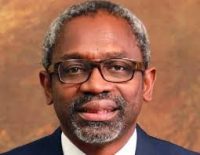Electoral Act: Reps to Address President’s Decline of Assent to Bill Next Year – Gbajabiamila

Mr. Femi Gbajabiamila, Speaker House of Representatives has said that the House of Representatives will adequately address the refusal of President Muhammadu Buhari to assent to the Electoral Act (Repeal and Re-Enactment) Bill, 2021, in January next year.
Speaker of the House, Femi Gbajabiamila, stated this in a speech to the lawmakers on Tuesday in Abuja to mark the adjournment of the House for the Christmas and New Year break.
Gbajabiamila said“As it is now, that bill has not received presidential assent, and it falls to parliament to decide the best way forward.”
According to the Speaker, the time was short to address the sensitive issue at hand in haste because members were set to proceed on break, and they must pass other important bills such as the 2022 Appropriation Bill and the Finance Bill before doing so.
He explained that the new bill introduced several innovations, besides direct primaries, to help advance the country’s democracy.
The speaker, who applauded the lawmakers for the efforts they made to ensure the passage of the bill, reassured them of the Legislative Agenda of the 9th House, which he said must be followed through to its conclusion.
Meanwhile, President Muhammadu Buhari has given reasons why he declined assent to the Electoral Act Amendment Bill.
Buhari announced his decision in a letter to the National Assembly where he cited several reasons for declining assent to the electoral act ammendment.
President Buhari’s letter was read on Tuesday’s plenary session at the Senate and the House of Representatives.
Buhari noted that the mandatory use of direct primaries for all political parties in the country will be too expensive to execute, adding that it will put a financial burden on Nigeria’s slim resources.
He said that conducting direct primary elections will be tasking, stresing that since such mode of election means a large turnout of voters, the move would stretch the security agencies.
Buhari also expressed concern that the proposed mandatory use of direct primaries will amount to the violation of citizens’ rights and will lead to marginalisation for smaller political parties.
He said the proposed use of mandatory direct primary elections will also lead to more litigation by party members.
Buhari argued that political parties should decide the best way to pick their candidates for elections, noting that his stance was based on a careful review and consultations.
